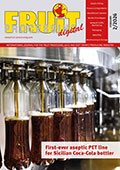US tariffs on Mexican and Brazilian imports could make Coca-Cola’s cane sugar reformulation expensive, says GlobalData
On July 17th, US President Donald Trump announced that he had secured from Coca-Cola an agreement to replace high fructose corn syrup with cane sugar as the sweetening agent in Coca-Cola. This can be understood as part of …

On July 17th, US President Donald Trump announced that he had secured from Coca-Cola an agreement to replace high fructose corn syrup with cane sugar as the sweetening agent in Coca-Cola. This can be understood as part of the Trump administration’s ‘Make America Healthy Again’ initiative, which is partly characterised by increased scrutiny on the highly processed elements of Americans’ diet. However, simultaneous threats of increased tariffs on Mexican and Brazilian imports endanger the commercial desirability of Coca-Cola’s proposed reformulation, says GlobalData, a leading data and analytics company.
GlobalData’s recent report “Industry Insights: The impact of tariffs on consumer packaged goods” reveals which CPG-relevant sectors are most affected by tariffs within specific trade relationships and how companies in these sectors will be affected. It also provides insights into consumer reactions to changes in the market caused by the imposition of tariffs.
Rory Gopsill, Senior Consumer Analyst at GlobalData, comments: “The recent headlines indicate that the US’ reliance on sugar imports could become very damaging for US beverage manufacturers like Coca-Cola. This is because, over the last two weeks, the US threatened 50 % tariffs on Brazil and 30 % tariffs on Mexico. According to the Observatory of Economic Complexity, Mexico supplied 33 % of the US’ sugar imports and Brazil provided 23 %.”
From a tariff-focused perspective, corn syrup is more desirable than sugar for US beverage manufacturers. This is because the US can supply corn syrup demand with domestic production but relies on imports to meet sugar demands. According to GlobalData’s Crop Area Production and Yield database, the US devoted 36.5 million hectares of land to corn cultivation, more than any other country except China. This strong domestic supply means the US is a major exporter of corn and does not need to rely on imported corn to meet the needs of domestic manufacturers.
Conversely, the US imported $2.4 billion worth of raw sugar in 2023, while exporting only $230 million, according to the Observatory of Economic Complexity. While the US is the second largest cultivator of corn globally, it is the 10th largest cultivator of sugar cane, resulting in comparatively weaker domestic production capabilities that results in the country’s reliance on imports.
Coca-Cola caught between ‘Make America Great Again’ and ‘Make America Healthy Again’
The policy conflict places Coca-Cola in a precarious position. Shifting away from corn syrup – abundant and cheap thanks to US subsidies – and toward cane sugar would already involve reformulation costs, new supplier negotiations, and possible consumer backlash. Add to that an additional cost surge from trade barriers, and the proposition could begin to undercut itself.
Gopsill concludes: “Solutions for Coca-Cola could involve increasing the proportion of their beverage that is produced in Mexico, where sugar cane is the normal sweetener. This could limit the reformulation and supply chain adaption costs. Avoiding new tariffs on Mexican imports being added as a cost to their business seems an unlikely prospect if the US makes good on its 30 % threat. If USMCA-compliant goods remain tariff-exempt, Coca-Cola should maximise the volume of sugar/finished beverage products it imports into the US from Mexico that are USMCA-compliant.”








